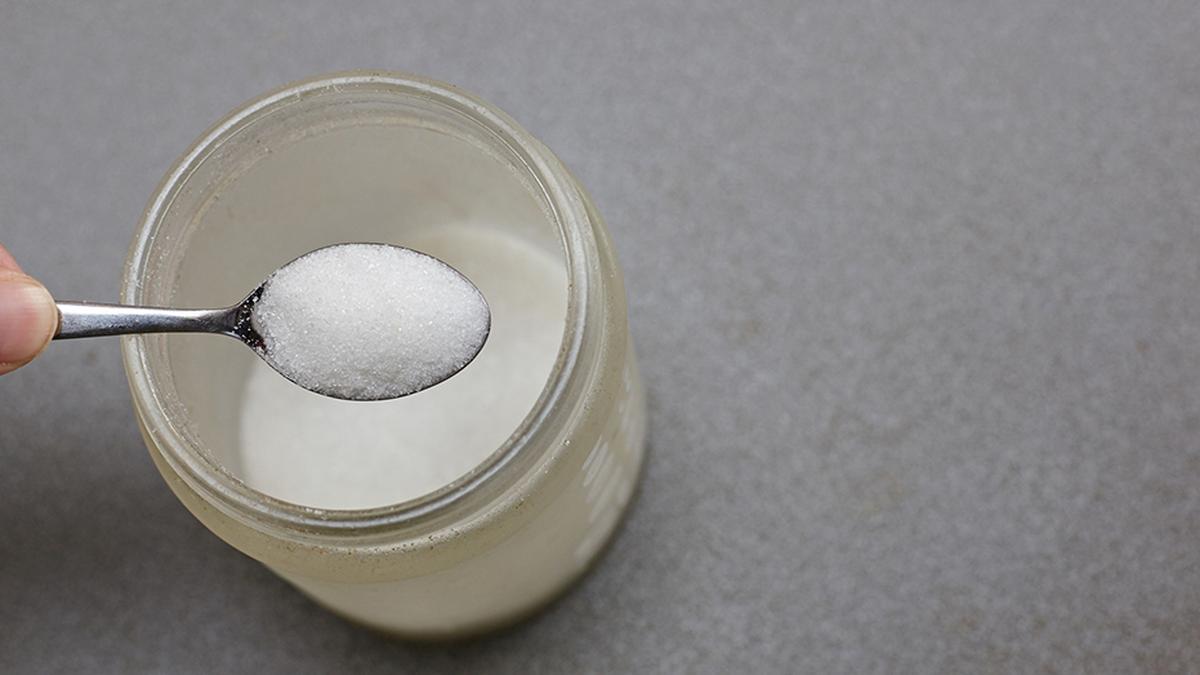Research shows that sugar is as addictive as drugs. It activates the reward centre of our brain by giving us the same pleasure.
| Photo Credit: Getty Images
Ever since I can remember, my biggest vice has been sugar. I am fond of sweets of all shapes and kinds. Maybe it started when my mother added a spoonful of sugar to most of my breakfast dishes to get me to eat quickly before school. As many Indian dishes are spicy, it felt alright to add a tiny teaspoon of sugar to the curries and chutneys.
I have always been an active person. My strategies were eating well, working out well, and living well, and I never felt the need to change my habits. I developed a good trade-off by eating a smaller meal so that I could enjoy my desserts. However, I realized that as I entered my 40s, I couldn’t burn off calories as easily as I could in my 20s. A busy schedule with kids, jumping into my car to get to the next block to save time, and sitting while working on the laptop for the better part of the day did not help me stave off weight gain.
When the hospital nearby announced a cooking competition in connection with “World Diabetes Day”, I signed up just for the heck of it. While trying out a few dishes before the big day, I realised with horror that my ability to cook without sweetening was terrible. The dishes in the competition were to be judged based on how healthy they were.
Though sugar consumption is not directly linked to diabetes, it certainly has a hand in it. Reading about the ill effects of sugar when preparing for the competition opened my eyes. Research shows that sugar is as addictive as drugs. It activates the reward centre of our brain by giving us the same pleasure, in fact, working better than cocaine. It also creates the cravings and withdrawal symptoms of drugs. It felt scary to read that. Was I an addict?
But no matter what articles I read on giving up sugar, I was not able to eliminate it from my diet. And when I tried, I developed severe headaches. Getting back to sanity meant I overloaded myself with sugar again, losing a good 48 hours in regret and pain and earning the ‘monster mom’ title.
As the saying goes, “One size doesn’t fit all”. Cutting out all sources of sugar at once might be a good idea for some, but taking baby steps helped me. I substituted palm jaggery for sugar in my coffee, had a nutritious breakfast, and indulged in somewhat healthier snacks for some months. Finally, one day, I gave up sugar completely as a bet with my friends. When I developed headaches, a little bit of salt in a glass of water with a freshly squeezed lime helped. Now, I can proudly say I did it. I eliminated sugar in all forms from my food and once my brain got tuned to it, I no longer crave it as much as I used to. Yes, I do eat sweets occasionally, especially something new and tantalising, but I am aware of the dangers of getting used to it. I now focus on reducing my sugar intake for life rather than short-term diet stints.
The benefits of reducing sugar are significant: weight loss, increased energy, improved dental health, and the amazing feeling of being free and not addicted to something that controls you. In the past, our ancestors only indulged in sweets on specific festival days, while the rest of the time they focused on simple, wholesome foods. Nowadays, we are surrounded by temptations on every side with easy availability of bakeries, sweet shops, takeaways, and instant food. We are slowly losing the appreciation for festivals and the significance of these treats as they are available all year round.
Our lives are busy but we would do well to take the time to enjoy the smell, the texture, and the taste of food, family, love, and laughter. After all, how can we celebrate Diwali without laddoos, Christmas without cakes, and Eid without gulab jamuns? It is no wonder our ancestors came up with a warning label in the form of proverbs while passing down all these delicious dishes. Even nectar is poison if taken to excess. A pearl of Buddhist wisdom goes like this – “Everything in moderation, including moderation”.
It’s normal to slip up occasionally, but we can always crawl back with hope.
sharon.pandian@gmail.com
Published – February 16, 2025 03:07 am IST

